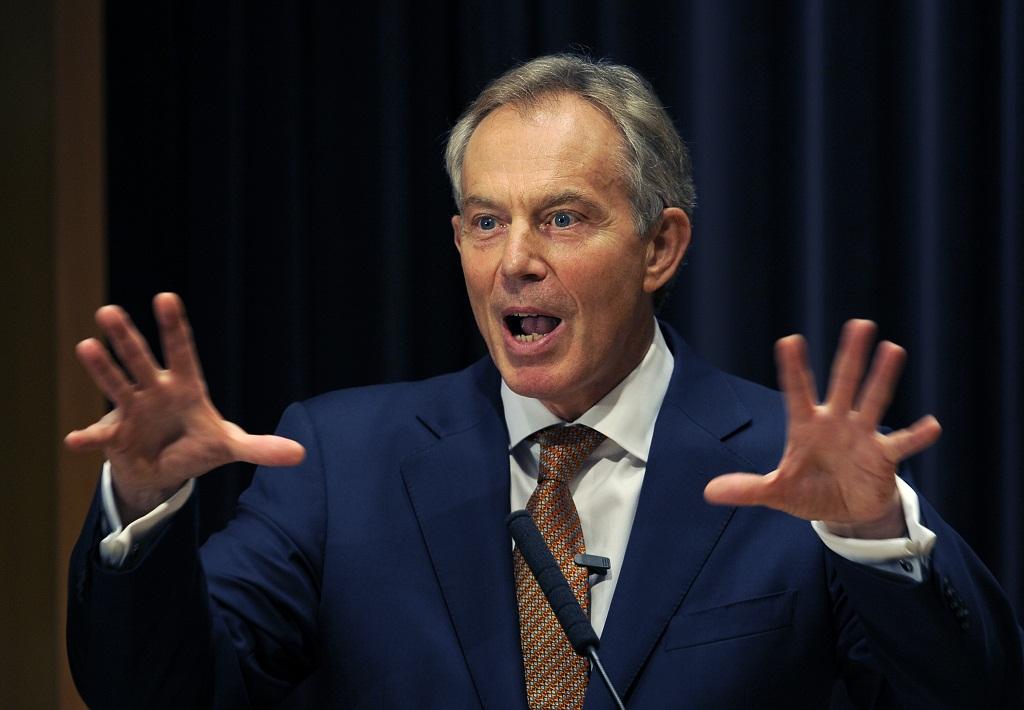Tony Blair's position on Brexit makes a lot of sense – Jeremy Corbyn should have considered it himself
Corbyn has run away from campaigning in the national interest. He could have easily called for a change of mind – it would have been a respectable thing to do

The return of “The Master”? That respectful nickname, conferred on Tony Blair by David Cameron and George Osborne, in thrall to his political prowess when Mr Blair was a kind of sun god in British politics, came to sour by the end of Mr Blair’s time in office. The Iraq War will continue to damage Mr Blair’s public reputation, perhaps forever. Still, in the context of his three disastrous successors, in other respects Mr Blair’s record looks much rosier. He was, after all, the last leader of the Labour Party to win a general election, more than a decade ago.
Gordon Brown was simply too accident-prone, inept and unlucky to outshadow his more glamorous rival; Mr Cameron’s reckless gamble on a needless referendum on Europe has relegated him to the very bottom rung of the British premiers’ league table, vying with Neville Chamberlain and Anthony Eden for catastrophic strategic errors of judgement; as for Theresa May, it is difficult to resist Mr Blair’s damning indictment of her as a “Brexit at all costs” Prime Minister, one who makes little secret of the fact that she has prioritised control of borders and immigration above all else, including the economic prosperity of the nation. That was the message she took from the events of last June, as she said in her keynote speech at Lancaster House a few weeks ago. It was, as Mr Blair has argued with characteristic eloquence and force, quite an improper message, let alone instruction, to take from the result of that flawed exercise.
Though one of his less eloquent phrases, Mr Blair was right to claim that “the debilitation of the Labour Party is the facilitator of Brexit”. Jeremy Corbyn, who Mr Blair spent an uncomfortable few weeks sharing an office with when both men first arrived in the Commons in 1983, has run away from the fight for the national interest, accepting last year’s vote as a pure mandate for Brexit. He could easily have taken Mr Blair’s position and campaigned for a change of mind. It is a perfectly respectable thing to do; politicians have to do it all the time after they lose elections. Mr Corbyn’s had plenty of practice at that. It is not “contempt” for the voters.
Yet the fact of the referendum last year is that the country voted for Brexit, but not on any terms, at any price and at any cost to the national interest. The fundamental truth was probably put best by Ms May’s Chancellor Philip Hammond. Faced with the challenge of promoting economic growth and balancing the books while simultaneously removing ourselves from our largest export market, source of investment and strategic alliances, Mr Hammond remarked to his party conference that no one voted in the referendum to become poorer.
Indeed they did not, and they should, in all conscience, be given an opportunity to ratify that decision once the full terms of exit from the European Union, and likely consequences, are known. In an uncertain world no one can know the future; but in two years’ time or so the shape of any future deal with the EU will be much better known and understood. We will be able to choose between the status quo we know so well, and the new world that the Three Brexiteers, Johnson, Fox and David, can present to Parliament and people.
As Mr Blair says, everyone has a right to change their mind, and such is the enormity of the step we are about to take that it demands a final act of acquiescence by the nation, through Parliament at the very least, and preferably through a popular vote. Mr Blair was not, strictly, arguing to stay in, but for the people to be offered a right to approve the terms of exit. If they are not, then the present divisions in the country will grow still worse.
In 2019, what is more, we will be able to judge the exact risks to the UK aside from the economy. Will Ireland retrain to having a “hard” border between North and South? What will that mean for peace or terror? Will it even prompt the exit of the Northern Ireland form the rest to of the UK? The constitutional position of Scotland and Wales will also be in question. We will also be able to judge what Brexit means for policing and crime detection, for migration more broadly, for the fight against extremism, as well as for the economy and jobs. The nation will be able to move forward with its eyes wide open.
Brexit may turn out to be a relatively attractive option for some, if the best of what we have in Europe can be preserved and the irksome aspects jettisoned. That was, after all, much of the argument presented by the Leave campaign. It may well, though, turn out to be a false prospectus. It would be beyond tragic for the British people to have been duped to the point of no return in this way. Article 50, if the political will is there across Europe, can be revoked if the EU’s member states wish to do so. We have not yet reached the point of no return. We are, though, on a journey, and one that we need to have a say on before it really does become too late to change course.

Join our commenting forum
Join thought-provoking conversations, follow other Independent readers and see their replies